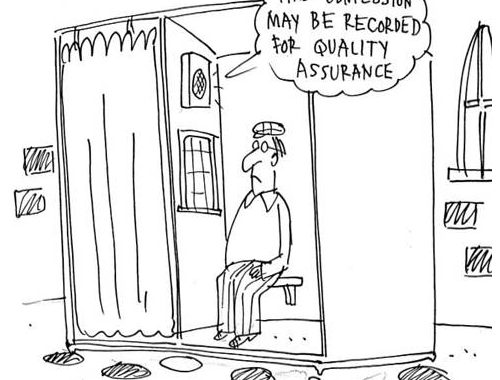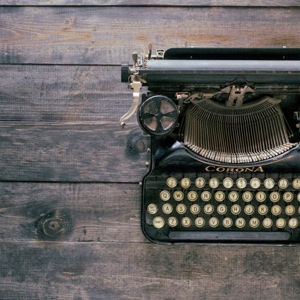Why should a layperson write about a legal document? Because it is an important one, and while nearly all opinions that concern the law are penned by people with legal training, the American Constitution concerns all of us. It sets the rules by which all the laws that constrain the daily lives of Americans are deemed to be valid or not and, in so doing, it influences the legal philosophy of the rest of the world. It is important that ordinary citizens understand its most egregious flaws. Lawyers will find all the minor ones.
In any library of civilisation, the American Constitution and Bill of Rights will perforce have an honoured place. It changed the world in the same year (1789) as that other life changing event, The French Revolution, was beginning. With beautiful serendipity it brought together, as its authors, an extraordinary group of political and intellectual giants. As it, slowly, permeated the world’s consciousness, legions of idealists must have been electrified, even by the first three words of its preamble: “We the People”. It spoke to the very hearts and souls of humans of a newly imagined free existence. Getting the thirteen States, then involved, to ratify the final version would have required almost superhuman political skill and diplomacy. Through the centuries, its voice, the Supreme Court, has provided us with many titans of legal thought and expression. In general, it has served its nation, and other nations, well.
But! But! Regretfully there are a lot of Buts! The first being that it was written more than two hundred and forty years ago in a world that is now almost unimaginable. A world that was generally ruled by the caprice of Kings, Queens and Emperors. Slavery was perceived to be a normal part of life along with anti-Semitism, wars and ubiquitous life-threatening diseases. In reality, it was the life that Hobbes described as nasty, brutish and short. Although the Constitution exploded as the first open attempt to put the people in control of their own society and was deemed extraordinarily radical for its time, it was, and is, a captive of its own period’s norms. Married women and children were but chattels, trapped within the total power of their husbands, with no vote, no protection, no property and no means of appeal. Slavery was accepted and the slaves who escaped to a non-slave State had to be returned to their so-called owners. The original owners of the land (referred to in the document itself as ‘Indians’) were just an aside, and men who did not own property had no hand in the electoral process. Some of its period related flaws still ensnare us today with misguided attempts to ensure a wealthy, white Christian control of everything.
It’s antiquity alone leads to some undesirable results. Even the fact that the abolishment of slavery, the rights of women and children, and the rights of people of any colour other than White were added as an afterthought creates a disturbing suspicion of the order and validity of the moral values within it.
Some of its more contentious clauses deserve our scrutiny.
The First Amendment includes in its text that ‘Congress shall make no law respecting an establishment of religion…or of abridging the freedom of speech, or of the press…’ (emphasis added). This prohibition is one of the most important, and most prized, provisions in the entire document. But free speech can become criminal when, for example, it is used to incite hatred or Revolution or it is slanderous. Prohibiting laws toward an establishment of religion does not mean freedom to set up a religion that requires for example, human sacrifice. This is covered by the criminal laws. In the same way, the right to freedom of speech should not protect the freedom of anonymous speech which is capable of causing grievous damage to the rights of other individuals: their right to privacy, to dignity, to their good name, to their very safety. If such damage is caused by anonymous free speech, there is no recourse for the victim. Such anonymous free speech is, at best, an act of abject cowardliness.
The Second Amendment, in particular, is somewhat obtuse because of age and poor drafting. It states that ‘A well-regulated Militia, being necessary to the security of a free state, the right of the people to keep and bear arms, shall not be infringed’. Modern rulings on this right seem to wilfully ignore the Militia section of this amendment, although it is the stated purpose of the right to bear arms. The meaning and rules of such a Militia are clearly laid out in Section 8 of the Constitution itself. This Section empowers Congress to provide for calling forth the Militia to execute the Laws of the Union, suppress insurrections and repel invasions. It reserved to the States the authority of appointing the officers and the training of the Militia ‘according to the discipline prescribed by Congress’ (emphasis added). This Militia bears no resemblance whatsoever to present day individual louts wandering the streets carrying assault rifles as a macho extension of their supposed sexual prowess. There is no invasion threatened today that can be dealt with by citizens with private guns and, as gun owners are the only ones currently threatening and leading insurrections, perhaps they exist to put themselves down? Leaving aside the arcane language of the Amendment, it is glaringly obvious that the private ownership of guns in the twenty-first century has no relationship to the concept of liberty.
Section 1 of the Fourteenth Amendment ends with the words… ‘Nor shall any state deprive any person of life, liberty, or property, without due process of law; nor deny to any person within its jurisdiction the equal protection of the laws (emphasis added). How then is it not criminal to forcibly separate refugee children from their parents without even a pretence of due process?
There is no longer a belief, nor a wisp of embarrassment, that the most gifted and learned judges should be appointed to the Supreme Court to interpret the law as best and as honestly as they can. Now they are blatantly chosen on their previous record on issues that favour one side, or the other, of the partisan divide. Some of them then spend their time developing the most convoluted reasoning to come to their desired result. Others pore over the words of the Founders, even to the extent of checking the meaning of relevant words in the eighteenth century (an attitude which elevates the Founders to the level of Prophets writing a Gospel to be valid for eternity). Missing entirely is any understanding of the intensely political nature of the entire constitutional venture. The initial draft may have been written idealistically but, to achieve its essential purpose of creating the Union, the paramount need was to persuade all thirteen states then existing to ratify the document. To achieve this all delegates, including the drafters, were obliged to swallow some bitter pills (including the Electoral College and two Senators per State). To justify this, they would have needed local benefits for their own states, political pork if you like, to assuage their own constituents. The initial Bill of Rights probably included much of this need.
For a democracy like America to be at peace with itself, respect for law is an essential ingredient. In effect, this means that, even when a decision is arrived at that some do not agree with, it can be reluctantly accepted if the decision is made on a good faith determination of the law and not on any extraneous dogma. That respect is faltering because of vile partisan squabbling for control through law. The modern Court has shown a cavalier attitude to the spirit of the Constitution itself. In striking down part of the Voting Rights Act they were fully aware that the rogue states involved would wield their new found freedom to disenfranchise many of their own black voters. In the famous case about a baker’s refusal to make a cake celebrating gay marriage, they did not take the opportunity to rule on anti-discrimination protections under the Constitution but sent a message that the Court was in favour of religious bigotry. In the Citizens United case, they released a veritable torrent of money into the political system (where it does not belong) on the spurious grounds that Corporations have the same rights as individuals. There are too many such rulings for honest people to feel at ease.
The Republican Party, particularly during the Trump era, has set out, openly, to pack all courts with conservative judges, seeing this as a way to control society when the Presidency is no longer in their hands. Given the makeup of American society this is a very high-risk strategy, not so much for them as for the very rule of law. However, the idea of having a very conservative Court ruling a moderately liberal society is but a pipe dream. The combined power of the Presidency, Congress and the People, would be far too great. It is most unlikely that any Court would even make the attempt.
The Constitution, despite the reverence we all hold it in, is out of date. Perhaps the pithiest explanation of this was Lori Lightfoot, the mayor of Chicago, pointing out that as a gay, black woman, she was not even a person in the original document. Tradition and admiration are no substitute for decent, clear law. So, write a new one. It would be worthwhile, even if extremely challenging but enormously cathartic. Is it beyond its time? – yes. Is it possible – yes, but only if America is still a can-do society? A large part, including the most revered sections on freedom of speech, religion and universal suffrage, can be retained. The remaining issues would be the most contentious but, arguing them openly in Citizens’ conventions would enable a far better focus on the future and, counter intuitively, allow the Republican Party to reset their decent conservative values after the nightmare of the past few years. Increased clarity about the spirit of and intentions behind the new provisions would also challenge members of the judiciary who have been blatantly using their interpretative powers to progress their own ideological positions. A new American Constitution could be as electrifying for the world as the old one was in its heyday.








